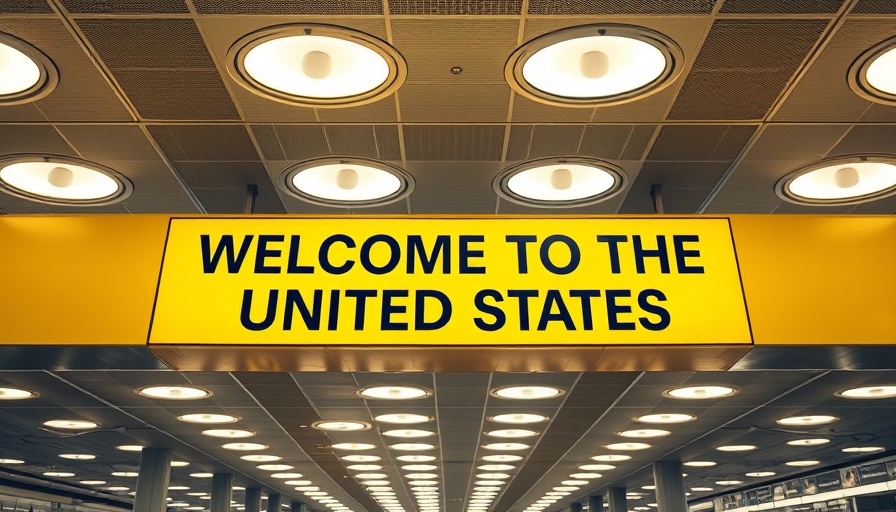
U.S. Tourism at a Crossroads: Understanding the Impact of New ESTA Fee
As international travel to the United States prepares to become notably more expensive, a recent decision by Congress to double the Electronic System for Travel Authorization (ESTA) fee has raised eyebrows worldwide. This fee, now set at $40, reflects not only a growing burden on travelers but also comes at a time when significant budget cuts have been imposed on Brand USA, the agency responsible for marketing American tourism destinations.
The Alarm Raised by Industry Leaders
The U.S. travel landscape is at a turning point, especially with globally significant events like the 2026 FIFA World Cup and the 2028 Summer Olympics on the horizon. Industry officials are understandably concerned about the repercussions of these changes. Geoff Freeman, head of the U.S. Travel Association, expressed his disappointment regarding the doubled ESTA fee and the slashed Brand USA budget, stating, “These moves may deter visitors at a time when we should be welcoming them with open arms.”
Freeman emphasized that the increased fee is akin to a “self-imposed tariff,” underscoring the belief that such financial barriers could alienate potential tourists, making America less competitive in the global tourism market. The expectation is that with less promotion and increased costs, travel interest could wane—particularly from international tourists who are often looking for affordability and accessibility.
Implications for Potential Travelers
These changes have practical implications for travelers as well. With the ESTA fee now almost doubling, international visitors will need to adjust their budgeting for trips to the U.S., adding an extra $19 for visa-free entry. This adjustment could lead many to reconsider their options or to explore other destinations offering more affordable travel experiences.
Seizing Opportunities Amid Challenges
As the U.S. positions itself to host major global events, the travel industry must navigate considerable challenges. The tension between increasing fees and reducing marketing funds creates potential pitfalls, yet it also presents opportunities for reevaluation and revitalization. Stakeholders are urged to find solutions that will keep America appealing to international visitors, perhaps by advocating for reinstated funding for Brand USA or promoting unique short-term incentives.
Looking Ahead: Can U.S. Tourism Adjust?
The impending changes present a crucial juncture for the U.S. tourism industry—a moment to reflect on what could be done differently. As travelers anticipate the new fee structures and marketing approaches, a community-focused and sustainable travel strategy could prove invaluable. Engaging international markets with storytelling that highlights the positive aspects of U.S. tourism while addressing global environmental concerns can resonate deeply with the modern traveler.
The Human Connection: Embracing Responsible Tourism
As people increasingly lean towards travel experiences that emphasize sustainability, the U.S. must adapt its narrative. Travelers are often drawn to destinations that not only offer amenities but also showcase responsible tourism practices. Incorporating eco-friendly initiatives, partnering with local communities, and supporting grassroots projects can enhance U.S. tourism's image.
The Role of Local Communities in Shaping Tourism
Moreover, local engagement plays an essential part in reshaping perceptions about American destinations. By fostering relationships between tourists and communities, the U.S. tourism sector can cultivate meaningful experiences that not only benefit travelers but also uplift local economies. Highlighting stories of how communities thrive and adapt can create a stronger connection between international visitors and the places they choose to explore.
Call to Action: Discover the Joy of Travel Responsibly
As you plan your next adventure, think about the impact of your travel choices. Explore destinations that celebrate sustainability and responsible tourism, and be part of a movement that prioritizes ethical engagement over economic convenience. Discover how embracing these values can lead to enriching experiences that make a positive impact on local communities.
 Add Row
Add Row  Add
Add 




Write A Comment